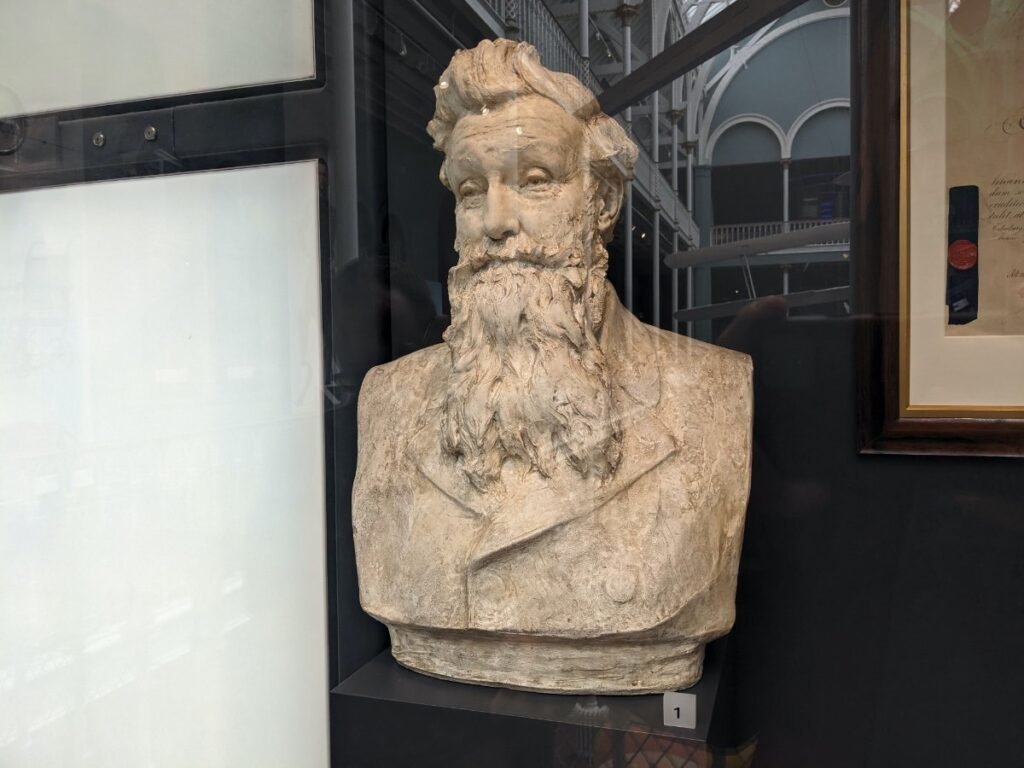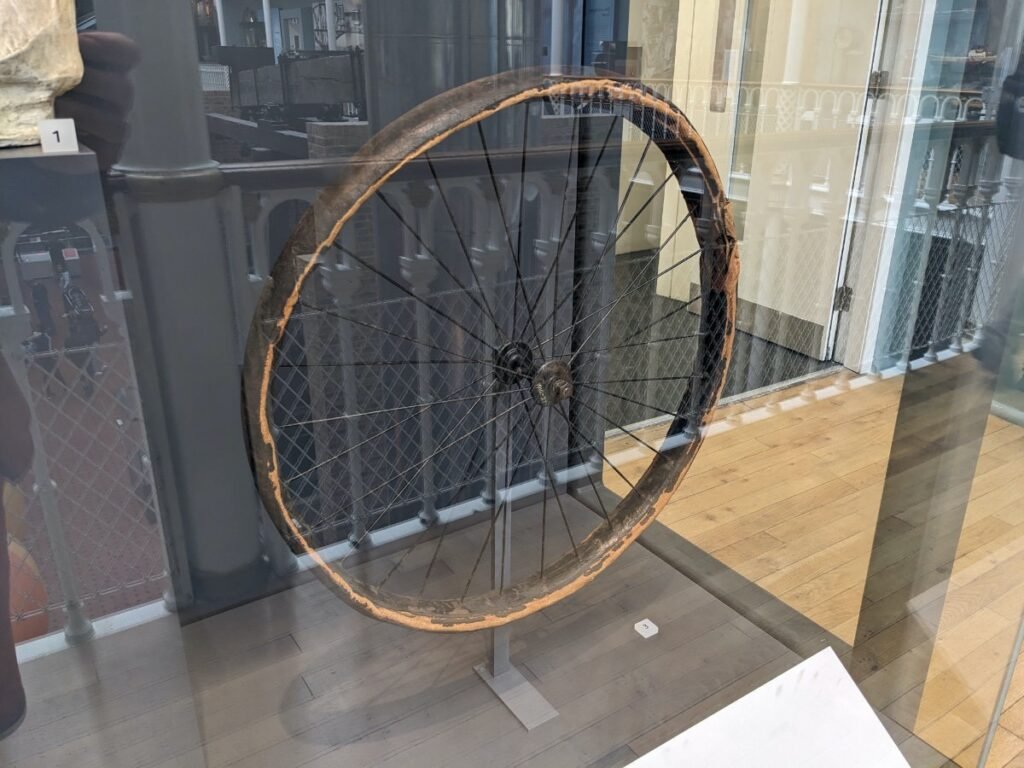23rd October 1921
Tyre inventor John Boyd Dunlop dies
Born in North Ayrshire in 1840, John Boyd Dunlop is famous for ‘inventing’ the pneumatic tyre, despite an earlier patent for pneumatic tyres having already been granted to a fellow Scot, Robert Thomson.
Dunlop had trained as a vet and originally made a living in that field. However, he would find fame as the man who made air-filled tyres, initially for his son’s tricycle, but later for adult racing cyclists, whose success was credited, at least partly, to Dunlop’s invention.

First race with tyres
The Freeman’s Journal of 25 October 1921 revealed that the first race in which the tyres were used was at Belfast College Sports, at which Dunlop had convinced a young cyclist called Dick Hume to try the new wheels. “When he appeared he was received with roars of laughter and was freely chaffed by the spectators. In the third lap only the brothers Du Cros were in front. Then the bell rang, and 200 yards from the finish line, with what appeared to be a wonderful spurt, Hume passed both the Du Cros, and won by about 60 yards.”
The Du Cros brothers to whom the paper refers were the sons of financier and Member of Parliament Harvey Du Cros, and they “were regarded as among the speediest riders on the cycle track”. Their defeat seemingly brought Dunlop’s invention to their father’s attention, for he formed a tyre-making business with the inventor and, eventually, bought him out entirely. Du Cros’ company was acquired several times over succeeding years, and eventually took Dunlop’s name as its own.

Dunlop dies in Dublin
The Lichfield Mercury of 28 October 1921 was one of many reporting his death in Dublin five days earlier at the age of 81. “Whether his invention greatly enriched him is not very clear – it is generally believed he did not accumulate much wealth therefore – but it has been the means of enriching many others, and it has proved a great boon to the users of cycle and motor vehicles ever since about the year 1890,” the paper told its readers. “Certainly it was the means of greatly extending the popularity of the ordinary cycle, and hastened the arrival of the motor vehicle.”
The Freeman’s Journal of 27 October reported that his funeral had been very well attended and that “in tribute to the memory of Mr Dunlop, all the motor traders of the city stopped business and closed their premises during the hours occupied by the funeral.”
